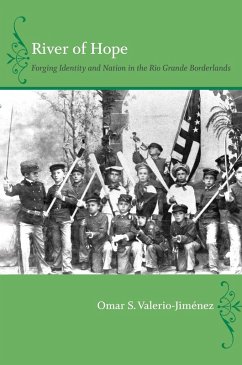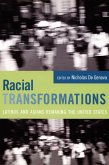In River of Hope, Omar S. Valerio-Jimenez examines state formation, cultural change, and the construction of identity in the lower Rio Grande region during the eighteenth and nineteenth centuries. He chronicles a history of violence resulting from multiple conquests, of resistance and accommodation to state power, and of changing ethnic and political identities. The redrawing of borders neither began nor ended the region's long history of unequal power relations. Nor did it lead residents to adopt singular colonial or national identities. Instead, their regionalism, transnational cultural practices, and kinship ties subverted state attempts to control and divide the population.Diverse influences transformed the borderlands as Spain, Mexico, and the United States competed for control of the region. Indian slaves joined Spanish society; Mexicans allied with Indians to defend river communities; Anglo Americans and Mexicans intermarried and collaborated; and women sued to confront spousal abuse and to secure divorces. Drawn into multiple conflicts along the border, Mexican nationals and Mexican Texans (tejanos) took advantage of their transnational social relations and ambiguous citizenship to escape criminal prosecution, secure political refuge, and obtain economic opportunities. To confront the racialization of their cultural practices and their increasing criminalization, tejanos claimed citizenship rights within the United States and, in the process, created a new identity.Published in cooperation with the William P. Clements Center for Southwest Studies, Southern Methodist University.
Dieser Download kann aus rechtlichen Gründen nur mit Rechnungsadresse in A, B, BG, CY, CZ, D, DK, EW, E, FIN, F, GR, HR, H, IRL, I, LT, L, LR, M, NL, PL, P, R, S, SLO, SK ausgeliefert werden.









